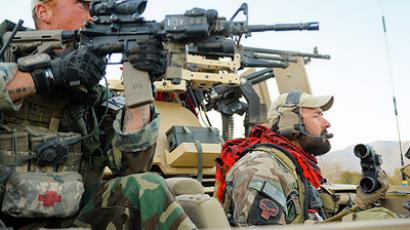Make money, not war
US defense hawks are growing increasingly nervous that America's military machine may suffer substantial damage as the government tries to cut spending. But such cuts would actually benefit the country, argues columnist Douglas A. Macgregor.
If Congress fails to agree a plan for the second round of deficit reduction by Thanksgiving, the Pentagon may have to shed almost a trillion dollars in costs over ten years. Former Colonel Douglas A. Macgregor says the sum can be saved simply by withdrawing the garrisons that the US unnecessarily maintains all over the world.“The strategic imperative for the United States is to cut back its investment in defense. We should look at at least two trillion, because in addition to being too expensive and too involved in too many places over the world that we quite frankly don’t need to be, there is no substantial military threat to the US. There has not been since 1989. So the argument that there is great risk if we reduce spending and reduce our presence overseas simply does not hold that close a scrutiny,” Macgregor told RT.Congress has found itself between a rock and the hard place. On the one hand, the panel looking into the possible ways to cut spending is under attack from lobbyists representing the defense industry. But on the other hand, the current crisis has made the American public wonder where their taxes go.“The losses of trillions of dollars along with thousands of people – not even addressing the hundreds of thousands of people who are being killed among the Muslims, Arabs or Afghans – have been invisible to the American public. Now the American public is finally beginning to connect the dots between the tremendous loss of revenue overseas on these fool’s errands that we have been involved with – and the current economic problems at home,” said Macgregor.













